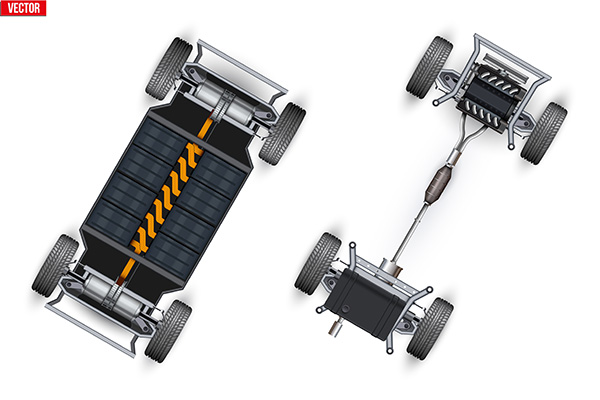
Electric vehicles (EVs) are becoming more popular every day, driven by environmental consciousness, technological advancements, and rising fuel costs. But as these sleek, silent machines take over the streets, many car owners ask if maintaining an electric vehicle differs from traditional gas-powered cars. The answer is yes—and no. While some unique aspects of EV maintenance exist, some general practices remain the same. Let's break it down.
Fewer Moving Parts, Less Frequent Maintenance
One of the most significant differences between electric vehicles and their gasoline counterparts is the number of moving parts. Traditional internal combustion engine cars have complex engines filled with parts that require regular maintenance—everything from oil changes to timing belts and spark plugs. On the other hand, electric vehicles are much simpler under the hood.
EVs don't have engine oil, which eliminates the need for regular oil changes. There are no spark plugs to replace or timing belts to worry about. This reduction in moving parts means less wear and tear, resulting in fewer breakdowns and maintenance visits over time. For many EV owners, this simplicity is one of the most appealing aspects of owning an electric car.
However, that doesn't mean EVs are entirely maintenance-free. They still have systems and components that require attention to keep the vehicle running smoothly. Let’s dive deeper into what’s different.
Battery Health
The battery pack is the most critical (and expensive) component of any electric vehicle. Unlike a gas tank, which can be filled up quickly and repeatedly without losing capacity, EV batteries degrade over time. Ensuring optimal battery health is key to getting the most range and performance from your electric car.
Most EV manufacturers recommend routine checks to monitor battery performance and health. This includes checking for software updates and ensuring the battery cooling system is functioning correctly. In some cases, battery health can be impacted by extreme temperatures, which means owners in hot or cold climates may need to pay extra attention to maintenance schedules.
Battery degradation isn’t something that happens overnight, but maintaining the system properly can help prolong its life, so you don’t end up needing a costly replacement down the line.
Brake Maintenance
Brakes on electric vehicles work differently than in traditional cars, thanks to regenerative braking. In a typical car, the brakes rely on friction to slow the car, which causes the brake pads and rotors to wear down over time. In EVs, regenerative braking captures energy while the vehicle is slowing down and sends it back to the battery, reducing the reliance on traditional friction brakes.
This system means that brake pads in electric vehicles last much longer than in traditional cars. However, it doesn’t make brake maintenance obsolete. Brake fluid still needs to be monitored and changed periodically. Plus, because regenerative braking can cause rust to form on brake discs due to underuse, EV owners may need to occasionally service these components to ensure they're functioning well.
Keeping Your EV Up to Date
Unlike traditional vehicles, electric cars rely heavily on sophisticated software to manage everything from battery performance to entertainment systems. As such, regular software updates are essential to keep your electric vehicle running efficiently.
In some cases, these updates can improve battery range, tweak the performance settings, or even fix bugs within the system. This is something unique to EVs and reflects how integrated technology is in the operation of electric cars. Just like your smartphone, your EV will need software updates to stay at peak performance.
Many EV manufacturers push these updates automatically, but it’s still essential to ensure they’re installed promptly. Neglecting software updates can result in reduced efficiency or even system malfunctions.
Tire Maintenance
Tires are one area where there is little difference between electric and traditional cars. Regardless of whether your vehicle runs on gas or electricity, you’ll need to keep an eye on your tire health. Regular tire rotations, alignments, and pressure checks are all still essential.
However, because electric vehicles tend to be heavier than their gasoline counterparts due to the large battery packs, they can put more stress on the tires. This means that EV owners may need to replace their tires more frequently. EVs deliver instant torque, which can lead to faster wear on tires if driven aggressively. Paying close attention to tire maintenance is crucial to ensuring your EV operates safely and efficiently.
Coolant and HVAC System
Electric vehicles use liquid coolant to maintain the temperature of their batteries and other electronic components. This is similar to traditional cars, which rely on a cooling system to prevent overheating. While the components may differ, coolant system maintenance is just as important for EVs as it is for traditional cars.
Another common maintenance area is the HVAC (heating, ventilation, and air conditioning) system. While EVs don’t have the same type of internal combustion engines that require heat management, they still use electric motors, inverters, and high-voltage systems that need to be kept cool. Therefore, maintaining the HVAC system to ensure proper heating and cooling is critical.
At Complete Automotive, we know electric vehicles inside and out. Let our specialists handle your EV maintenance needs with precision and care. Visit us today to experience expert service for your electric car!